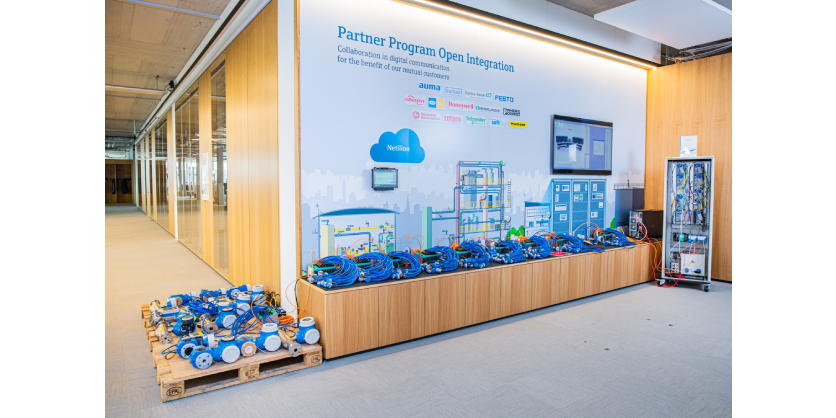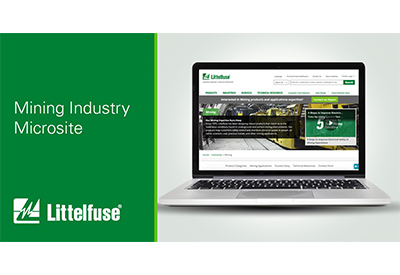Ethernet-APL is Ready, Endress+Hauser to Begin Rollout of Compatible Devices
May 24, 2023

Following on the success of a multi-partner load-testing program, Endress+Hauser is launching a full portfolio of Ethernet-APL measuring devices based on the PROFINET protocol. Expectations in the process sector for this new advanced physical layer are enormous, and the load testing results confirm the technology’s potential as a game-changer in industrial communication.
Ethernet-APL makes possible fast, digital data transmission with high bandwidth over long distances and in explosive atmospheres. Such easy access to data from field instruments can lift process automation to a new level of efficiency and professionalism, even enabling field-to-cloud data networking to optimize processes and entire plant operations.
Endress+Hauser conducted two load tests of a realistic Ethernet-APL setup combining components from various manufacturers. The tests were designed according to customer specifications to prove that components from different manufacturers can be combined to create a reliable and robust system based on Ethernet-APL. Chemical company BASF defined the requirements from the customers’ point of view.
The first test was set up with nearly 240 Endress+Hauser measuring devices, including flow, pressure, temperature and level sensors. They were integrated into a system with Pepperl+Fuchs’ field switches and a Honeywell control system, all using Ethernet APL and PROFINET. For the second test, an ABB control system was substituted.
The test results were conclusive: Ethernet-APL can be used under realistic, real-world circumstances. The test cases were carried out with maximum network layout, and the scalability and fault tolerance were successfully verified. All relevant requirements like total netload or redundancy switch-over times were met or exceeded.
The Endress+Hauser Open Integration partner program unites more than a dozen leading manufacturers that want to ensure the streamlined interaction of their complementary products. According to Jörg Reinkensmeier, head of the partner program at Endress+Hauser, “the load tests proved that Ethernet-APL can be used for real. The components from various manufacturers work together smoothly, and the systems run reliably.”
Conventional 4- and 8-wire Ethernet has achieved only limited penetration of field level process measurement devices because of the requirements of intrinsically safe operations as defined by IEC TS 60079-47, as well as its limited range (100 metres) and bulkier and more expensive wiring. That also makes it suboptimal for adding the many low-power analytical and monitoring tools like sensors, vision systems and actuators to transform field level operations into a true IIoT environment.
Ethernet-APL is a ruggedized, two-wire application adapted for process applications that overcomes these limitations, and more. It incorporates the 10BASE-T1L global transmission standard (IEEE 802.3cg-2019) for Ethernet over a single shielded pair of twisted copper wire. It delivers exponentially greater data speeds, enabling full duplex, 10 Mbps data transmission, more than 300 times faster than fieldbus and 10,000 times faster than HART, with a range of 1,000 metres. Ethernet-APL also fulfills the requirement of intrinsic safety for devices in hazardous areas up to Zone 0, 1 and 2/Division 1 and 2.
Ethernet-APL topologies also can deliver more power (on the same cable with data) to device nodes in intrinsically safe zones than 4-20 mA or fieldbus.
The actual analytical or measurement technologies in Ethernet-APL devices from Endress+Hauser and others do not change; The process data they provide is the same as the equivalent fieldbus model.
The portfolio of Ethernet-APL enabled devices from Endress+Hauser will provide Canadian and other process operators with an ideal entry point to begin converting operations to realize the benefits of a true IIoT environment.
More Information
Related Story
ODVA Conformance Testing Available for EtherNet/IP Devices on the Ethernet-APL Physical Layer for Process Automation
Recently, ODVA conformance testing is now available for EtherNet/IP network-enabled devices that communicate over the Ethernet-APL physical layer. Conformance testing verifies the Ethernet-APL physical layer functionality by checking that the different port types properly adhere to the relevant specifications. The EtherNet/IP communication network functionality is also confirmed as a part of this process.
Together, both tests ensure maximum interoperability between vendors as well as different types of instruments and infrastructure components. The availability of complete EtherNet/IP over Ethernet-APL conformance testing is the final step for ODVA to make the benefits of Ethernet available at the field level in the process industries.





